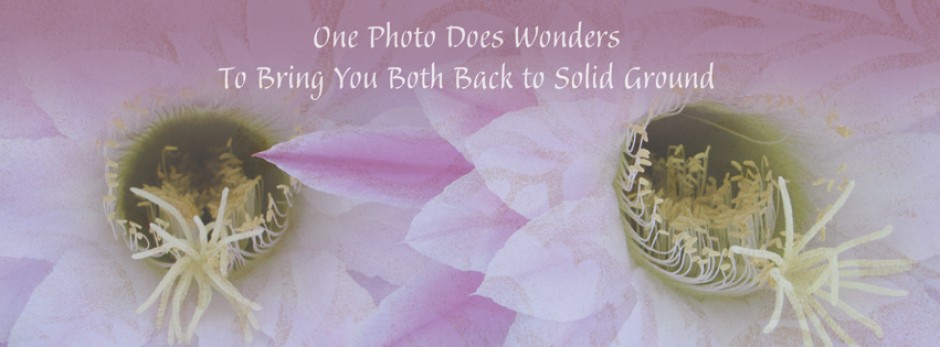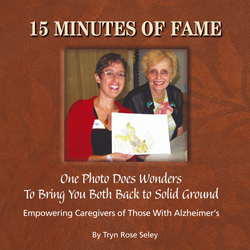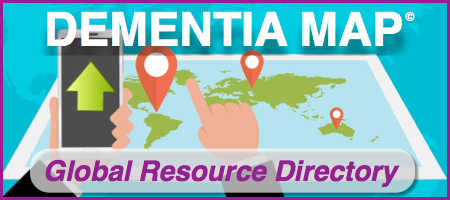Those with Alzheimer’s are trying to live a meaningful life, just like the rest of us. In my caregiving experiences thus far, I have learned to bring life to a person who is reaching for it, and seen it improve everyone’s day.
There will come a time when that person will be done reaching, and will be finishing. Often, this line is challenging to determine and delicate to walk. But asking the question, “How can I bring the best stories about him or her every day, in one form or another?” has been valuable for me as a caregiver, a musician, and a fellow human.
“Alone, we can do so little; together, we can do so much.” -Helen Keller
Take care, and stay in touch,
Tryn Rose Seley,
Author, 15 Minutes of Fame: One Photo Does Wonders To Bring You Both Back to Solid Ground at www.caregiverheart.comPurchase PDF version of 15 Minutes of Fame
For those of you who prefer Amazon Kindle versions, Click Here.
For those of you who prefer Nook versions, Click Here.
Request printed copies at trynrose@gmail.com



I read this post and all I can think about is my 89 year old Grandfather who is STILL driving. When he drives it makes me very nervous because he speeds and sometimes drinks then drives. The cherry on the top is that my Grandfather has horrible balance! The biggest problem is that he doesn’t want to let anyone else drive. I have to come up with clever ways to make it so I can drive or my alternative is to pray and hold on for dear life.
I was my mother’s pmariry caregiver to Alzheimer’s. And if I had heard someone suggest that I embrace Alzheimer’s while I was in the thick of care giving trenches, I would have quickly dismissed the advice as superficial and one-dimensional. But as a recovering caregiver, I realize the power of that statement. Unintentionally and unrehearsed, I did embrace Alzheimer’s during the early stages of this journey, and that very act fundamentally defined my experience, converting an otherwise stressful journey into a mindful and meaningful series of life lessons.In the beginning I’ll admit that I was afraid of the disease because I didn’t want to lose my mother to the tangles of this fatal disease. I simply wasn’t emotionally prepared to let that happen because it meant letting her go.So I did my best to keep connected to her, by doing what I could. I prepared homemade, single-portioned meals to fill her refrigerator. If she was going to lose her mind, I thought, let it happen on a full stomach. At the very least, it made me feel like I was still in charge. But during those quiet moments when truth becomes easier to swallow, I would admit to myself that my mother was falling apart before my very eyes and it would put me into a panic-stricken tailspin. Like anything in life, the more I looked truth in the eye, the less panic I felt.Gradually I stopped trying to teach her how to use the TV remote, heat up leftovers in a microwave, and hold a telephone. I stopped trying to squeeze her back into the reality that we had once shared because that approach ended up being a source of aggravation to us both. By leaving the ‘denial’ stage and embracing Alzheimer’s, I liberated myself from the fear that Alzheimer’s would steal my mother’s love. And if I still felt unsure or afraid of my mother’s disease, I would remind myself that ‘when life hands you Alzheimer’s, embrace it.Celia PomerantzAlzheimer’s: A Mother Daughter Journey
Hi. My senior mom loves to watch our church’s televised services each Sunday at home. I usually go to church often helping with grandkid duty there. On those days I can’t make it, I listen to one of my favorite verse-by-verse Bible studies from Calvary Chapel Philadelphia on my iPod. I’m currently working my way through Genesis. It’s fascinating!
What a great offer and great peace of mind for family. So often we hear of senors being discharged from hospital settings with little notice to patients and their families. With the special offers from Home Instead Senior Care and Lifeline, patients and their families can relax knowing that they will make the transition safely home from hospital to home with a professional caregiver by their side. I am sure this will be a huge success.
Almost 20 years ago, I lost my first wife to colon cancer. I wish I’d known then what I’ve relaned from Kay Marshall Strom’s excellent Caregiver’s Survival book. Like many people suddenly caught up in the role of caregiver, I was unprepared mentally, physically, and emotionally for the role. I did my best then, but it was far short of what I could have done for her, for the children, and for myself had I only known. My hope now is that this book will find its way to where it’s needed: to those facing the prospect of providing the primary care for a loved one in failing health. She connects to the reader by laying bare her own doubts and hardships in more than 7 years of caring for her terminally ill husband. Her book is filled with the dignity, respect, and hope that, through God’s inspiration, can be developed in even the most hopeless of cases.
A caregiver with elementary age children or younger would be a deal breaker for several reasons. First, there is too much chance that they will bring illnesses from school, through children, to my mom. Secondly and probably most relevant, is that I would not feel like I could count on them to be dependable, because I would likely be at the mercy of the mom needing off during all of the children’s illnesses, school meetings, babysitting problems, etc. There are just too many people involved in whether or not the caregiver could get herself to my mom every morning or not. I can’t have last minute call-outs.
I was my mother’s primary caregiver for Alzheimer’s. And if I had heard someone suggest that I embrace Alzheimer’s while I was in the thick of care giving trenches, I would have quickly dismissed the advice as superficial and one-dimensional. But as a recovering caregiver, I realize the power of that statement. Unintentionally and unrehearsed, I did embrace Alzheimer’s during the early stages of this journey, and that very act fundamentally defined my experience, converting an otherwise stressful journey into a mindful and meaningful series of life lessons.In the beginning I’ll admit that I was afraid of the disease because I didn’t want to lose my mother to the tangles of this fatal disease. I simply wasn’t emotionally prepared to let that happen because it meant letting her go.So I did my best to keep connected to her, by doing what I could. I prepared homemade, single-portioned meals to fill her refrigerator. If she was going to lose her mind, I thought, let it happen on a full stomach. At the very least, it made me feel like I was still in charge. But during those quiet moments when truth becomes easier to swallow, I would admit to myself that my mother was falling apart before my very eyes and it would put me into a panic-stricken tailspin. Like anything in life, the more I looked truth in the eye, the less panic I felt.Gradually I stopped trying to teach her how to use the TV remote, heat up leftovers in a microwave, and hold a telephone. I stopped trying to squeeze her back into the reality that we had once shared because that approach ended up being a source of aggravation to us both. By leaving the ‘denial’ stage and embracing Alzheimer’s, I liberated myself from the fear that Alzheimer’s would steal my mother’s love. And if I still felt unsure or afraid of my mother’s disease, I would remind myself that “when life hands you Alzheimer’s, embrace it.” Celia Pomerantz-“Alzheimer’s: A Mother Daughter Journey”
December 6, 2011What a fun idea! Just found this blog tonight .I have a hubs who has Alzheimer’s at age 47 and we have a 14 year old dahutger and 16 year old son. Life is VERY busy .but I am thinking the support found here will be great!!!! If I have time I would love to put up some Christmas pics at my blog.
December 3, 2011Though my spouse does not have Alzheimer’s, he does reuqire special accommodation when it comes to attending services. When we first came from Florida to Georgia, I called the temple ahead of time to first see if they could accommodate my husband’s wheelchair and had a bathroom that I could accommodate him in. They cleared off the ramp, installed a privacy curtain to the bathroom and always made sure that the deacons pushed him to give me a break. As we learned about my husband’s rare spinal conditions they then went further to arrange where he sits both in the winter and the summer to make sure he’s completely comfortable. They are also very patient with my constant popping up and down during the services to get him the things he needs (water, meds, etc.). I’d say the best tip would be is to be in constant communication with church/temple staff they just might come up with a solution that you hadn’t thought of and they’ld probably appreciate a chance to help out.When all of the above mentioned items occur, I am giving the opportunity to feel equal and not different and that makes attending services for me relaxing.
This is an excellent arlctie on some of the options available to caregivers. Taking care of a loved one with Alzheimer’s can be a difficult task, and this arlctie provides great information on a number of available resources. Adult day care centers like Active Day can provide care, companionship, and much more for your loved one. Consider adult day care for your loved one. It provides a great alternative to traditional care, with many locations and affordable options.
Thanks for sharing this!
Yup, I fit on both ends. I think that, on a day to day basis, kids do require more care, but on an overall basis, sometimes it evens out. When my senior dad’s Parkinson’s Disease got worse, he was put on Hospice that required round-the-clock care that the grandkids rarely need. So sometimes we can spend more time in short crisis spurts for our aging parents. Either way, it is nice to know we’re not alone. Thanks for the interesting article.